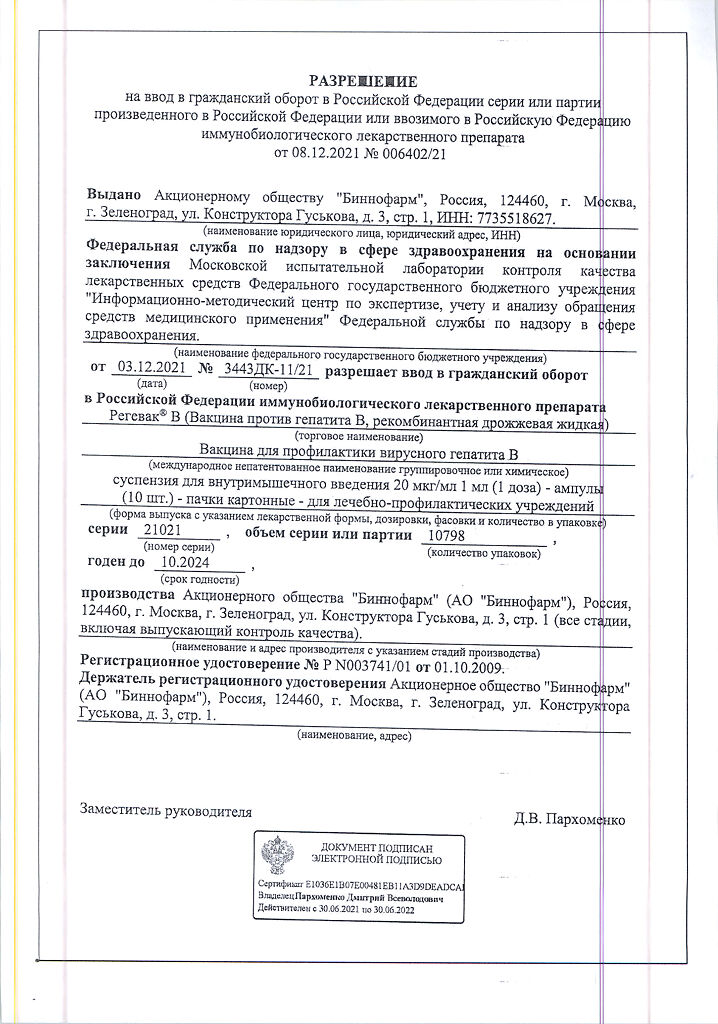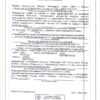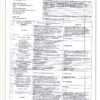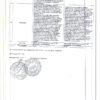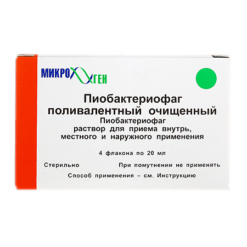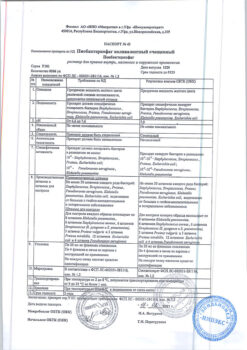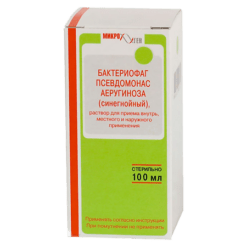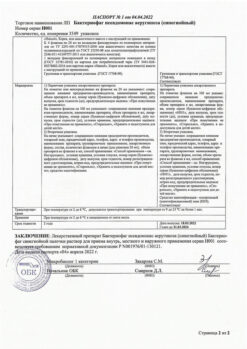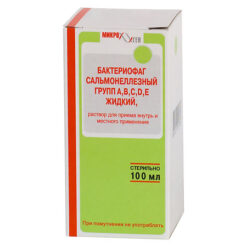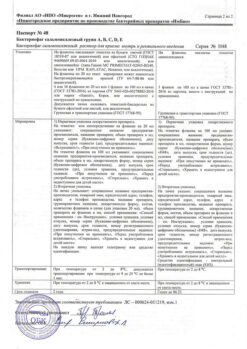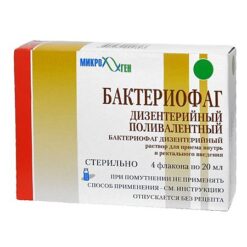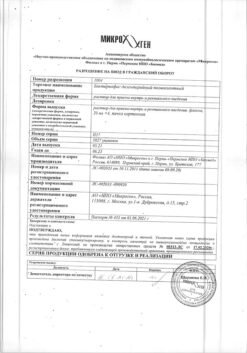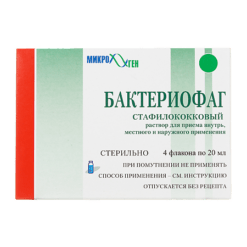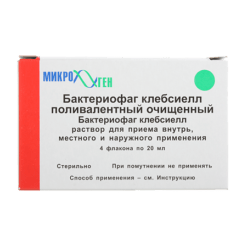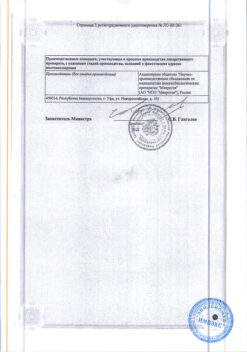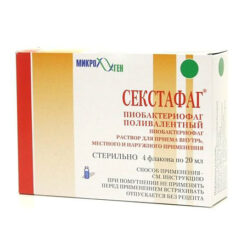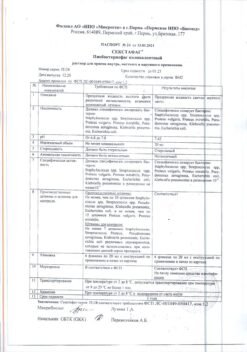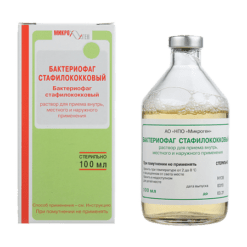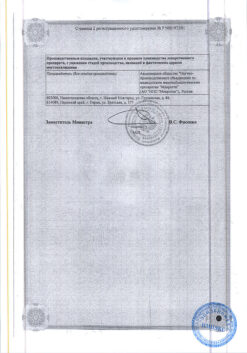No products in the cart.
Regevac B, 20 µg/ml 1 ml 10 pcs
€1.00
Out of stock
(E-mail when Stock is available)
Description
Regevak B is a vaccine for prevention of hepatitis B.
It contains hepatitis B virus surface antigen (serotype ayw), obtained by DNA recombination on yeast culture, transformed by inclusion of the gene encoding hepatitis B virus surface antigen in its genome.
The course of vaccination leads to the formation of specific antibodies to the hepatitis B virus in more than 90% of those vaccinated in a protective titer.
Indications
Indications
Active ingredient
Active ingredient
Composition
Composition
Active substance:
Purified hepatitis B virus surface antigen (HBsAg) – 20 µg,
Auxiliary substances:
Thiomersal (preservative) – 50 µg (or none),
aluminum hydroxide (sorbent) – 0.5 mg;
Buffer components;
Injection water up to 1 ml.
How to take, the dosage
How to take, the dosage
The vaccine is administered intramuscularly into the deltoid muscle, to newborns and young children in the anterolateral surface of the thigh: administration in another place reduces the effectiveness of vaccination. The ampoule is shaken before administration.
In children in their first year of life and those with a history of somatic diseases, it is recommended to vaccinate with a vaccine that does not contain the preservative thiomersal (mertiolate).
The single dose for newborns and persons up to and including 18 years of age is 0.5 ml (10 µg HBsAg). The single dose from 19 years old is 1 ml (20 mcg HBsAg).
The single dose for patients in hemodialysis units is 2 ml (40 µg HBsAg).
The vaccine in ampoules containing 1 ml of the drug (adult dose) can be used to vaccinate 2 children provided they are vaccinated at the same time.
Vaccination under the national calendar of preventive vaccinations.
Vaccination against viral hepatitis B is carried out for all newborns in the first 24 hours of life.
Infants from mothers from risk group are vaccinated in accordance with the scheme 0-1-2-12 (first dose – in the first 24 hours of life, second dose – at the age of 1 month, third dose – at the age of 2 months, the fourth dose – at the age of 12 months). Simultaneously with the first vaccination [it is recommended to inject human immunoglobulin against hepatitis B in a dose of 100 ME intramuscularly into the other thigh. According to the same scheme, children at risk who were not vaccinated in the maternity hospital due to medical contraindications after the removal of the latter are vaccinated.
Newborns and all children of the first year of life not falling in the risk group are vaccinated in accordance with the 0-3-6 scheme (1 dose – when the vaccination starts, 2 dose – 3 months after the first vaccination, 3 dose – 6 months after the vaccination start).
Children not vaccinated before the age of 1 year and not belonging to the risk group, as well as adolescents and adults not vaccinated earlier, are vaccinated according to the scheme: 0-1-6 (jl dose – at the time of vaccination start, 2 dose – 1 month after the first vaccination, 3 dose – 6 months from the start of immunization).
Note: in case of prolongation of the interval between the first and second vaccination; up to 5 months and more, the third vaccination is carried out 1 month after the second.
Inoculation in persons who have had contact with the material infected with hepatitis B virus is carried out according to the scheme of 0-1-2 months. Along with the first vaccination it is recommended to give human immunoglobulin against hepatitis B in the dose of 100 ME (for children under 10) or 6-8 ME/kg (for the rest of the age group) intramuscularly (in another place). In these persons who have previously received a full course of hepatitis B vaccination, HBsAg antibody levels are determined prior to the second vaccination. If antibody titers are at least 100 IU/L, the second and third vaccination is not carried out.
Persons from the risk group, due to their professional duties who have constant contact with blood, should be examined annually for the content of antibodies to HBsAg. In case the antibody titer drops below 100 IU/L, revaccination with one dose of the vaccine is recommended.
Unvaccinated patients who are scheduled for surgery are recommended for an emergency 0-7-21 day vaccination regimen.
Patients in the hemodialysis unit are given the vaccine four times on a 0-1-2-6 month schedule.
Only a disposable syringe is used for the injection.
The injection site is treated with 70% alcohol before and after the injection. Opening of ampoules and the vaccination procedure is carried out in strict adherence to the rules of asepsis and antisepsis.
Do not inject intravenously.
Interaction
Interaction
Scheduled vaccinations against hepatitis B can be administered simultaneously (on the same day) with vaccines of the national calendar of preventive vaccinations (except BCG vaccine), as well as inactivated vaccines of the calendar of preventive vaccinations for epidemic indications.
Hepatitis B vaccine can be administered with anti-allergy drugs.
Interaction with other medicines has not been established.
Special Instructions
Special Instructions
In view of the possibility of immediate allergic reactions in particularly sensitive individuals, vaccinated persons should be medically monitored for 30 minutes after vaccination. Vaccination sites must be provided with anti-shock therapy.
Complaints about specific and physical properties of the drug should be addressed to the L.A. Tarasevich State Research Institute for Standardization and Control of Medical Biological Preparations (119002, Moscow, per. Sivtsev Vrazhek 41, tel. (499) 241-39-22, fax (499) 241-92-38) and to CJSC Binnopharm (124460, Moscow, Zelenograd, 4th Western Proezd, Bldg. 3, building 1. Tel./fax: (495) 510- 32-88).
A case of increased reactogenicity of the drug and complications after its administration should be reported by telephone or telegraph to the Federal Service for Supervision of Consumer Rights Protection and Human Welfare and the Tarasevich State Research Institute for Standardization and Control of Medical Biological Preparations.
Contraindications
Contraindications
Hypersensitivity to yeast and other components of the vaccine.
A pronounced reaction (fever above 40 ° C, swelling, hyperemia greater than 8 cm in diameter at the injection site) or a complication of the previous administration of hepatitis B vaccine.
Acute infectious and non-infectious diseases, chronic diseases in the acute stage – immunization is carried out not earlier than 1 month after recovery (remission).
In case of non-serious forms of acute respiratory infections and acute intestinal infections the vaccination can be carried out after the normalization of temperature.
Pregnancy. The effect of the vaccine on the fetus has not been studied. Vaccination of a pregnant woman may be considered if the risk of infection is extremely high.
Side effects
Side effects
Side effects of the vaccine are rare. In 5-10% of cases there may be pain, erythema and thickening at the injection site. On administration of the drug the following symptoms are sometimes possible: slight increase in temperature, complaints of malaise, weakness, joint pain, muscle pain, headache, dizziness, nausea, vomiting, abdominal pain.
All reactions to the injection are mild and usually go away 2-3 days after injection.
Perspective to the possibility of immediate allergic reactions in particularly sensitive individuals, vaccinated persons should be medically monitored for 30 minutes from the time of vaccination.
The vaccination sites must be provided with anti-shock therapy.
Pregnancy use
Pregnancy use
The effect of the vaccine on the fetus has not been studied.
Vaccination of a pregnant woman can be considered if the risk of infection is extremely high.
Additional information
| Shelf life | 3 years |
|---|---|
| Conditions of storage | Store at temperatures from 2 to 8°C. Freezing is not allowed. |
| Manufacturer | Binnopharm, Russia |
| Medication form | suspension |
| Brand | Binnopharm |
Related products
Buy Regevac B, 20 µg/ml 1 ml 10 pcs with delivery to USA, UK, Europe and over 120 other countries.


